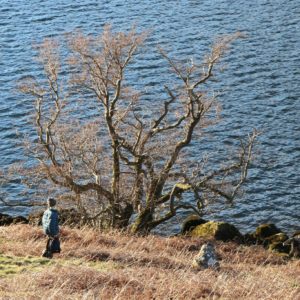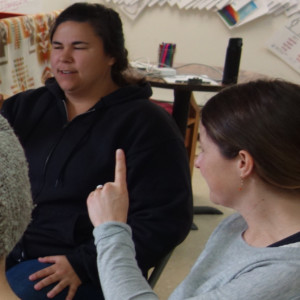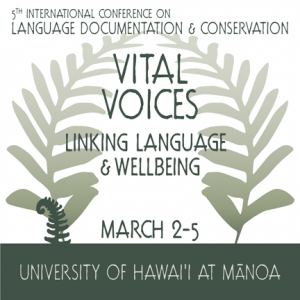Going Cold Jerky*: Outside of the WAYK Bubble
Here’s Robbie Penman’s update from the fall of 2017, a few months after his summer with WAYK on St. Paul Island, Alaska. Thanks for the update, Robbie! *Jerky is one… Read more »

Here’s Robbie Penman’s update from the fall of 2017, a few months after his summer with WAYK on St. Paul Island, Alaska. Thanks for the update, Robbie! *Jerky is one… Read more »

In my last blog, I wrote about the obstacles to maintaining an immersion bubble. In this blog, I ask how the immersion bubble, as a kind of “language policy”, can… Read more »

The idea of creating an “immersion bubble” is probably nothing new in language learning. Nor is it new within the field of language revitalization in the 20th and 21st centuries;… Read more »

Read Myles’ first post about linguistic terminology here. Working in the field of linguistics over the last few years, I have noticed some divisions in terminology that I would like… Read more »

What does it mean to revitalize a language? What does it mean to secure its existence for the next generation of speakers? What does this look like and why is… Read more »

The 5th International Conference on Language Documentation and Conservation (ICLDC), “Vital Voices: Linking Language & Wellbeing,” will be held March 2-5, 2017, at the Hawaiʻi Imin International Conference Center on… Read more »

We are pleased to share a gorgeous new video by Sky Hopinka, WAYK team member and a truly stellar filmmaker. Sky’s film is about how classroom teachers can strengthen one… Read more »

[vimeo=19905263] Here’s the second video in our Irish Language series. Start with the first one. In order to take advantage of videos like this, you’ll need to have mastered the… Read more »

[vimeo=19896067] For anyone who has either been to a WAYK workshop, language night, or mastered the WAYK tutorial, you can copy-cat along with this video and learn some Irish language,… Read more »

Thank you to everyone playing WAYK, and for getting the word out about the Fluency Revolution. Please keep it up – we’re making progress, but aren’t quite there yet. We’re… Read more »

I’d like to say I’ve gotten better at not panicking when I hear of a language struggling. While mostly true, I still have a reaction – it now just feels… Read more »

WAYK Podcast, Episode 5: Revitalizing Chinuk Wawa, Part 2. 32 minutes and 18 seconds. [direct download] [Note: Chinuk Wawa is a very endangered indigenous language native to the Pacific Northwest…. Read more »

WAYK Podcast, Episode 4: Revitalizing Chinuk Wawa. 39 minutes and 41 seconds. [direct download] [Note: Chinuk Wawa is a very endangered indigenous language native to the Pacific Northwest. Please keep… Read more »

Language revitalization doesn’t happen once; it signifies a necessary and continual process throughout the life of a language. Revitalization happens every time a new person learns the language, every time… Read more »

We now live in a time where, in the next 5-10 years, we will see a massive die-off of language diversity as globalization and modern forces have their final… Read more »

In the past month, two critical members of the Hupacasath First Nation died; they numbered among the last who spoke the language native to Vancouver island fluently from childhood. Hupacasath… Read more »